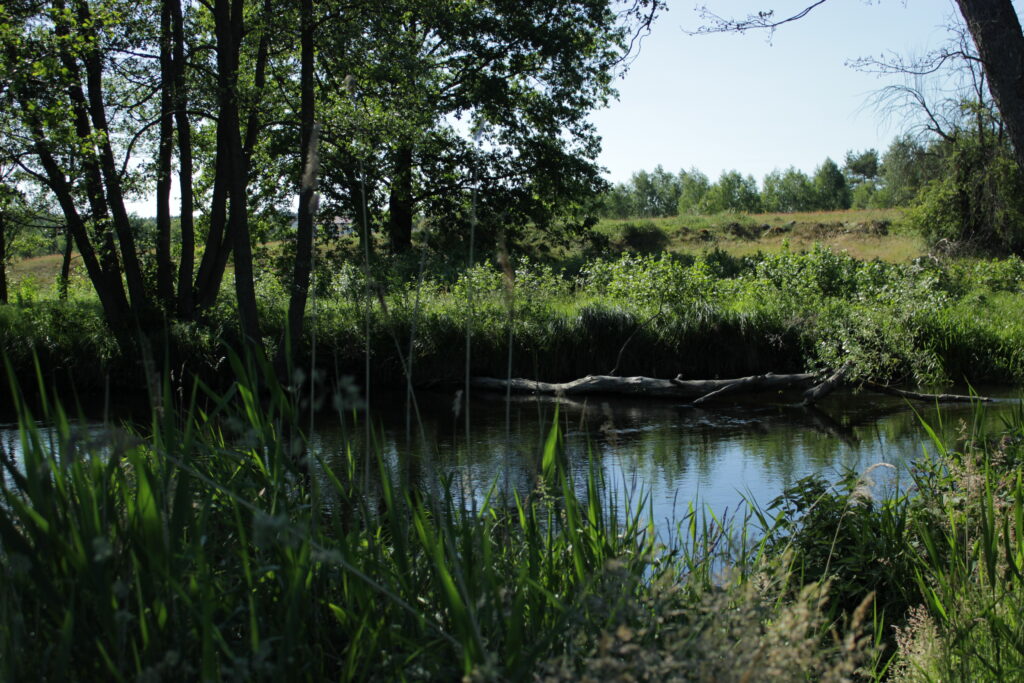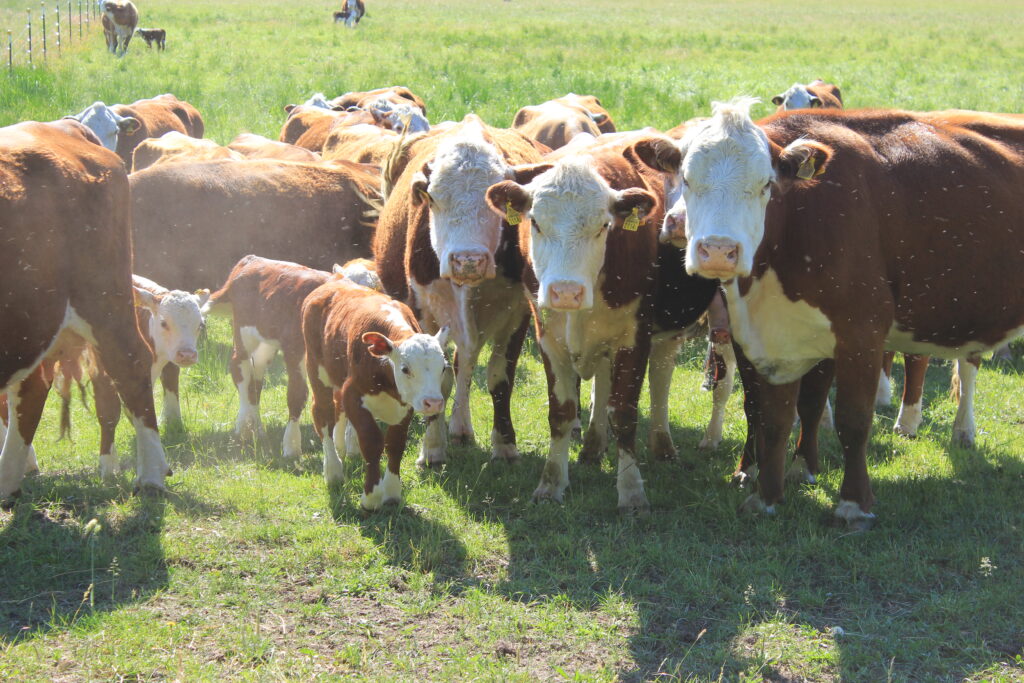All activities at Elżbieta Reitzig’s cattle farm are carried out in an organic, environmentally friendly manner. Nutrient runoff from pastures and meadows is limited using, for example, natural buffer zones, midfield ponds and a rotational grazing system. Pastures are divided into several paddocks, ensuring that nutrients from the animals can be immediately taken up by plants.
When I started my business, there wasn’t a single hare or deer here, just a few birds. It was the result of long-term use of chemical fertilizers.
“We do our best to close the nutrient cycle at the farm." says Elżbieta. "Our animals eat the grass, which is then evenly fertilized by them. This reduces not only the nutrient runoff, but also the extra effort associated with collecting, storing and applying fertilizer by hand.”
Elżbieta is passionate about nature conservation and successfully combines farming with measures to protect endangered species and natural habitats. Almost all of the farmland is located within a Natura 2000 area, and the farm’s nature conservation measures have had positive results.

“When I started my business, there wasn’t a single hare or deer here, just a few birds. It was the result of long-term use of chemical fertilizers,” says Elżbieta.
“Now, the pastures are full of hares and the midfield ponds with frogs, aquatic birds and even turtles. Nature has returned.”
National winners of the 2015 Baltic Sea Farmer Award
In 2015, Elżbieta Reitzig received the national Baltic Sea Farmer Award in recognition of her efforts to reduce nutrient runoff on her farm.
Elżbieta and her family are eager to share their knowledge on sustainable agriculture and welcome groups of farmers, tourists and nature enthusiasts to their farm. She hopes that the recognition from winning the Polish award can help her to further spread knowledge on sustainable farming, and that her work can be used as a good example for others to learn from.

FARM FACTS
Location: Stefanowo, Wielkopolskie Province in eastern Poland
Type of farm: Organic cattle farm (115 ha)
Main production: Meat products
Key practices: Cattle kept in pastures and winter paddocks, rotational grazing system, grass buffer strips, extensive use of meadows, midfield ponds, biological sewage treatment plant
National jury motivation: "Elżbieta Reitzig’s farm proves that beef cattle breeding can be managed with respect to nature, including the Baltic Sea. Nutrient runoff from pastures and meadows is limited using, for example, buffer strips, rotational grazing system and pastures divided into paddocks. The farm also uses all available technology solutions to reduce negative impact on the water and air, including a biological sewage treatment plant and biomass-fueled central heating system. In addition, Mrs. Reitzig successfully combines farming with measures to protect endangered species of birds, through the conservation of natural habitats within a Natura 2000 area."

